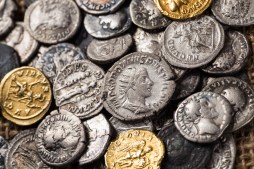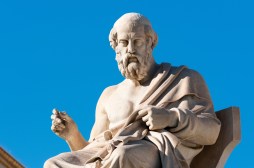Why Did Caligula Make His Horse a Consul? Analyzing Historical Perspectives
The story of Caligula, the third Roman emperor, is replete with tales of extravagance and eccentricity. One of the most infamous anecdotes involves his beloved horse, Incitatus, whom he purportedly made a consul. This bizarre event has sparked curiosity and debate among historians regarding its implications and motivations. In this article, we’ll explore the historical context surrounding this peculiar decision and what it reveals about Caligula’s reign.
Who Was Caligula?
Born Gaius Julius Caesar Augustus Germanicus in AD 12, Caligula was known for his controversial rule from AD 37 to AD 41. He initially garnered popularity due to his generous policies following Tiberius’s oppressive regime. However, his reign quickly descended into chaos marked by erratic behavior and signs of mental instability. These aspects contribute to an understanding of why he would consider promoting a horse to such a high office as consul.
The Story Behind Incitatus
Incitatus was not just any horse; he was a prized thoroughbred owned by Caligula who reportedly lived in luxury. Sources suggest that the emperor bestowed lavish gifts upon him—including marble stalls, jeweled harnesses, and even servants—indicating not only affection but also a preference for opulence over traditional power structures within Rome.
Symbolism Over Substance: Theories on the Appointment
Many scholars argue that the appointment of Incitatus as consul was more symbolic than literal. Some believe that it represented Caligula’s disdain for Roman political institutions or an attempt to mock the Senate’s ineffectiveness during his rule. By elevating his horse above seasoned politicians, he may have been making a pointed statement about their value—or lack thereof—in governance.
Historical Accounts: Fact or Fiction?
Much of what we know about this episode comes from ancient historians like Suetonius and Cassius Dio, whose writings blend fact with anecdote underlining their critical stance towards Caligula’s rule. Therefore, while some elements may be exaggerated or misinterpreted over time—such as claims that Incitatus had an actual position in government—the core concept reflects deeper issues within Roman society under Caligula.
Legacy: What Can We Learn from This Incident?
The tale of Caligula’s horse serves as a fascinating case study on leadership styles in history—especially regarding how absolute power can lead to irrationality and absurdity in governance. It raises questions about authority dynamics and societal values during times when rulers stray far from rational decision-making practices.
In conclusion, while we may never know all details surrounding why exactly Caligula made Incitatus a consul or if it truly happened as described by ancient historians, this story remains an intriguing reflection on human behavior amidst power struggles throughout history.
This text was generated using a large language model, and select text has been reviewed and moderated for purposes such as readability.











